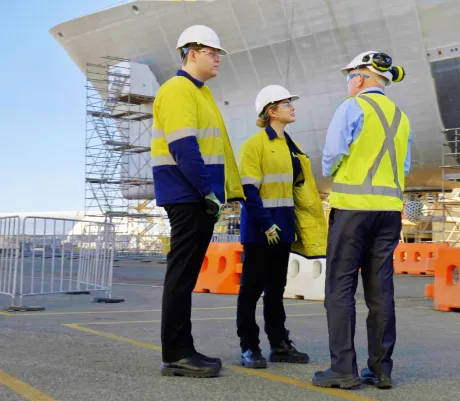Where hustle meets muscle - no two days are the same as a warehouse worker
As a warehousing and logistics worker you'll enjoy job variety, strong demand, and opportunities to grow in a vital industry that keeps goods moving.
What does a warehousing and logistics worker do?
Warehousing and logistics workers are crucial in the supply chain, ensuring products arrive on time and efficiently. They look after the daily operations in warehouses, including receiving shipments, storing goods, picking and packing orders, and organising inventory.
In any given day you could be:
- Counting incoming stock and reconciling it with requisitions
- Updating inventory and location records
- Coordinating the receiving, handling, storing, and shipping goods
- Using voice technology and barcode readers to pick and pack orders
A career as a warehousing and logistics worker would suit someone who is:
- Organised
- Communicative
- Active
- Process-driven
- Punctual
Ready to start your warehousing and logistics traineeship?
Get answers fast about warehousing and logistics traineeships
A traineeship in warehousing and logistics teaches you skills for a career in the supply chain sector.
Under the supervision of qualified warehousing and logistics workers, you’ll learn how to:
- Use new technologies made for warehousing
- Apply common pick and pack techniques
- Stocktake, receive and despatch goods
- Enter data into stock management programs, for items such as received delivery slips, requisitions and invoices
It's easy to apply for a warehousing and logistics traineeship through MEGT’s Job Board.
- Check out the MEGT Job Board in the top right-hand corner of our website.
- Search for ‘warehousing and logistics traineeship’ on the Job Board.
- Apply online – send your resume and cover letter directly to employers.
- Polish up the interview skills and land a job as an apprentice!
A two-year traineeship includes a Certificate III and offers real-world warehousing and logistics experience, preparing you for roles in operations and customer service.
In the future, you may want to lead teams or specialise in customs or freight forwarding.
Certificate II refers to a nationally recognised qualification that prepares you for the workplace or academic studies. While it’s not required, it may help you to prepare for a Certificate III.










